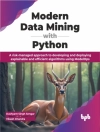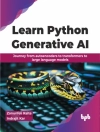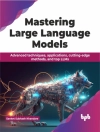This Springer Brief addresses the challenges of analyzing multi-relational and noisy data by proposing several Statistical Relational Learning (SRL) methods. These methods combine the expressiveness of first-order logic and the ability of probability theory to handle uncertainty. It provides an overview of the methods and the key assumptions that allow for adaptation to different models and real world applications. The models are highly attractive due to their compactness and comprehensibility but learning their structure is computationally intensive. To combat this problem, the authors review the use of functional gradients for boosting the structure and the parameters of statistical relational models. The algorithms have been applied successfully in several SRL settings and have been adapted to several real problems from Information extraction in text to medical problems. Including both context and well-tested applications, Boosting Statistical Relational Learning from Benchmarks to Data-Driven Medicine is designed for researchers and professionals in machine learning and data mining. Computer engineers or students interested in statistics, data management, or health informatics will also find this brief a valuable resource.
قائمة المحتويات
Introduction.- Statistical Relational Learning.- Boosting (Bi-)Directed Relational Models.- Boosting Undirected Relational Models.- Boosting in the presence of missing data.- Boosting Statistical Relational Learning in Action.- Appendix: Booster System.












